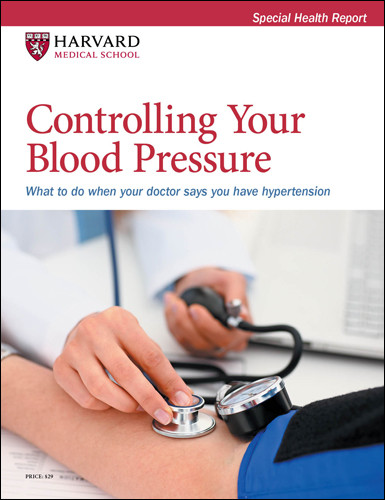Wrong-sized blood pressure cuff can throw off readings
In the journals
- Reviewed by Howard E. LeWine, MD, Chief Medical Editor, Harvard Health Publishing; Editorial Advisory Board Member, Harvard Health Publishing

When it comes to measuring your blood pressure at home, cuff size matters. Using a "regular"-sized arm cuff with an automated device resulted in inaccurate blood pressure readings for people who needed a small, large, or extra-large-sized cuff, according to a study published online Aug. 7, 2023, by JAMA Internal Medicine.
With individuals needing a small cuff, using a regular-sized cuff produced an average systolic reading (the top number) that was 3.6 millimeters of mercury (mm Hg) lower than with an appropriately sized cuff. On the other hand, for adults who needed a large or extra-large cuff size, using a regular-sized cuff resulted in higher systolic readings — an average of 4.8 mm Hg and 19.5 mm Hg, respectively. Smaller discrepancies also appeared in diastolic blood pressure readings (the bottom number) for adults who had cuffs that were either too large or too small. The researchers pointed out that most home blood pressure monitors come with a regular-sized cuff, which can accommodate arm circumferences of nine to 17 inches, but smaller and larger cuffs are available.
If you have questions about whether the size of your home blood pressure cuff is right for you, bring it with you to your next medical appointment and compare its results to those obtained by your doctor.
Image: © Dobrila Vignjevic/Getty Images
About the Author

Matthew Solan, Executive Editor, Harvard Men's Health Watch
About the Reviewer

Howard E. LeWine, MD, Chief Medical Editor, Harvard Health Publishing; Editorial Advisory Board Member, Harvard Health Publishing
Disclaimer:
As a service to our readers, Harvard Health Publishing provides access to our library of archived content. Please note the date of last review or update on all articles.
No content on this site, regardless of date, should ever be used as a substitute for direct medical advice from your doctor or other qualified clinician.
















